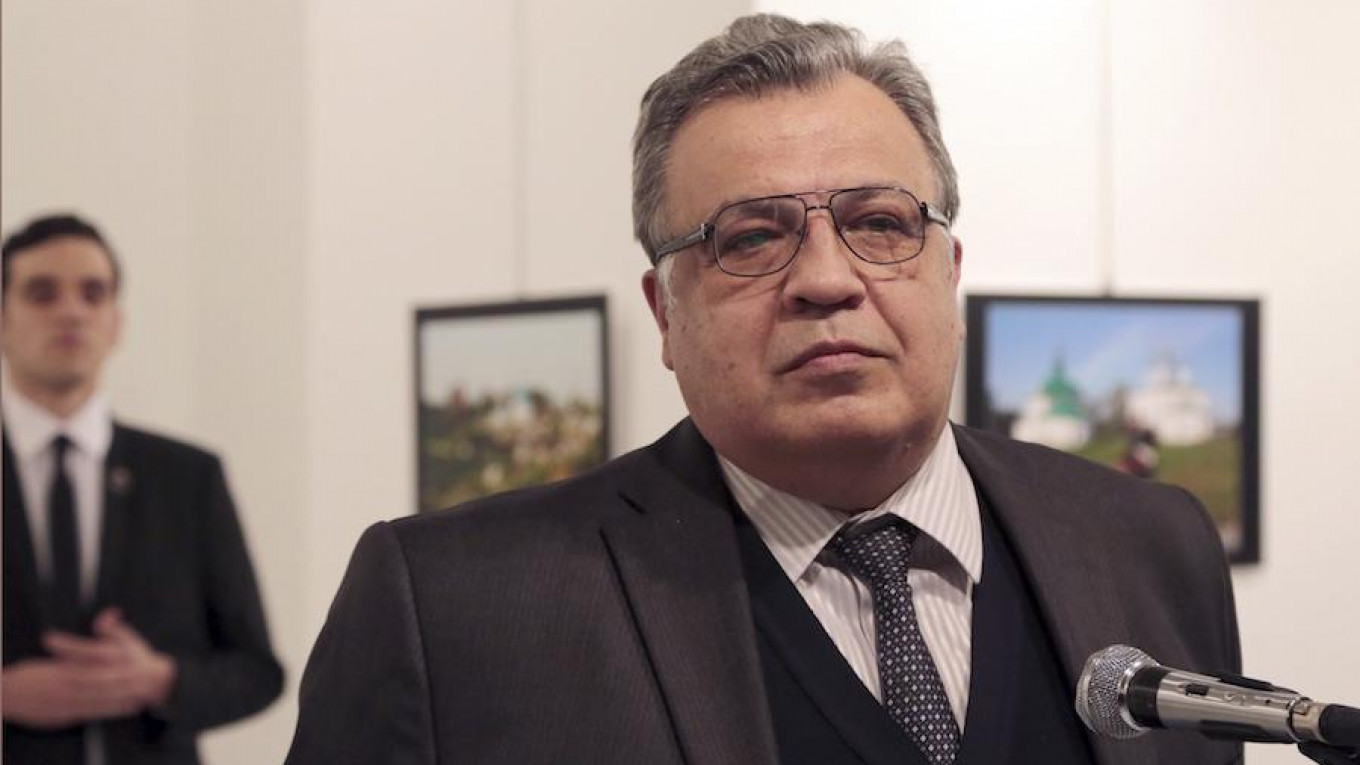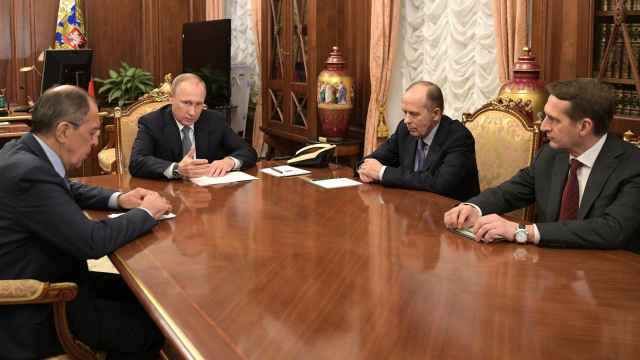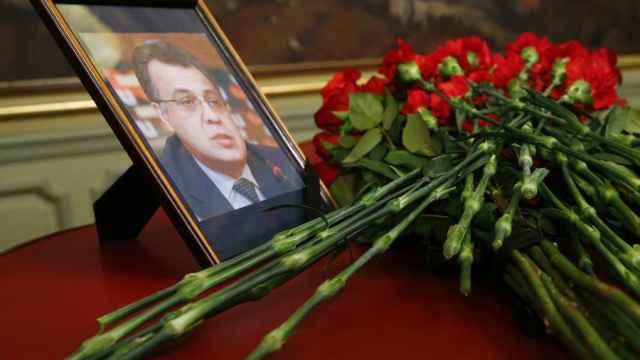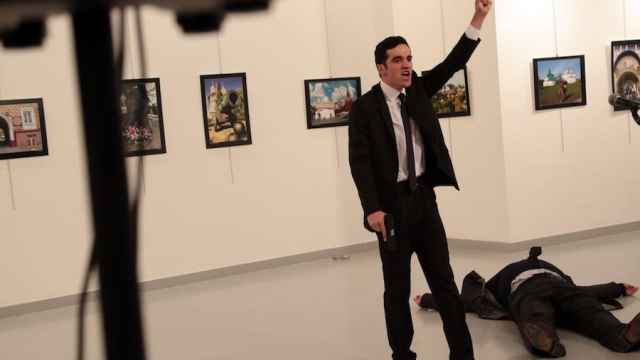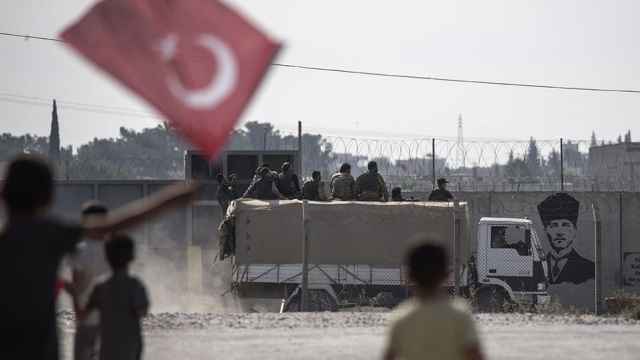It’s horrifying to think that Ambassador Andrei Karlov’s gruesome assassination was specifically designed for the world’s television screens.
But, most likely, it was. This was a grisly routine familiar to anyone who watches the news. Like the monstrous execution videos produced by Islamic State, Karlov’s death became a spectacle viewed across the globe. The painstaking minutes and seconds before shots ring out, and the footage of the assassin nervously fidgeting only served to amplify his message.
The assassination has some hallmarks of a historical turning point — something that has potential to start a war, a casus belli. Conflicts can be — and have — started with the assassination of an ambassador. WWI, as Twitter users immediately recalled, started in similar circumstances.
But Karlov’s death, it seems, will not under- mine Moscow and Ankara’s new reconciliation. Russia and Turkey rushed to declare the attack a “provocation.”
The reason Karlov’s death won’t start a war is obvious: the war is already in full swing. Russia is entrenched in this war. It is a major player.
When the Kremlin rallied to the aid of the Syrian regime more than a year ago, it was under the pretext of taking terrorists to task. Moreover, it was an opportunity to restore Russia’s presence on the global scene and inspire patriotism at home.
It was meant to be quick and easy. But wars are harder to exit than they are to enter — from Vietnam to Afghanistan, history has shown us this.
Little by little, Russia got carried away in Syria. Before long, an airborne operation had turned into a full-blown military offensive, with special forces on the ground and advisors in Syrian barracks.
If anything, the Russian presence in Syria only seems to have increased since Vladimir Putin announced an official full withdrawal from Assad’s embittered conflict in March.
Consider the celebrations following Palmyra’s liberation from ISIS, when Russia’s most famous musicians performed in the city’s ancient ruins. Or consider the Syrian city of Aleppo, leveled to the ground with the help of Russian air force, now a global symbol of unstoppable humanitarian tragedy.
Undoubtedly, the Kremlin might have chosen a path to geopolitical dominance by pursuing policies with less tragic consequences.
As political analyst Vladimir Frolov put it, “a nimbler strategy, with more emphasis on de- terrence and protection of civilians from ISIS and the Syrian regime’s brutality (Russia could have grounded the Syrian air force), would have cast Russia’s role in Syria in an entirely different light.”
But this approach would require diplomacy and ground work and, besides, it wouldn’t sell at home.
As Russia engaged in its two more recent military conflicts — Ukraine, then Syria — polls showed that it was only Russia’s “fighting capacity” that charted an upward trend in respondents’ sense of national pride.
War abroad sells just as well as the domestic stability Putin promoted in the early 2000s.
Despite signs of war fatigue at home, independent pollster Levada suggests that 52 percent of Russians continue to approve of the country’s military involvement in Syria.
Geopolitical victories — real or imagined — continue to keep Russian people happy. This is one thing the Kremlin will have learned from 2016.
A Message from The Moscow Times:
Dear readers,
We are facing unprecedented challenges. Russia's Prosecutor General's Office has designated The Moscow Times as an "undesirable" organization, criminalizing our work and putting our staff at risk of prosecution. This follows our earlier unjust labeling as a "foreign agent."
These actions are direct attempts to silence independent journalism in Russia. The authorities claim our work "discredits the decisions of the Russian leadership." We see things differently: we strive to provide accurate, unbiased reporting on Russia.
We, the journalists of The Moscow Times, refuse to be silenced. But to continue our work, we need your help.
Your support, no matter how small, makes a world of difference. If you can, please support us monthly starting from just $2. It's quick to set up, and every contribution makes a significant impact.
By supporting The Moscow Times, you're defending open, independent journalism in the face of repression. Thank you for standing with us.
Remind me later.


